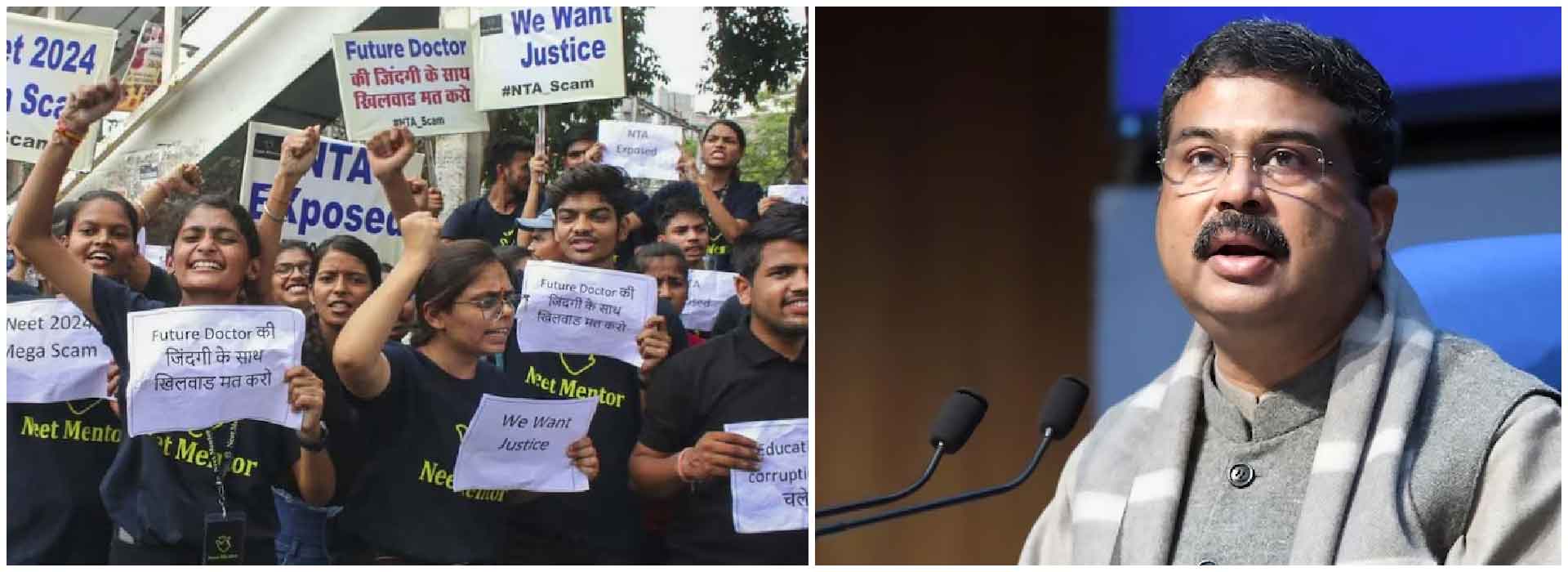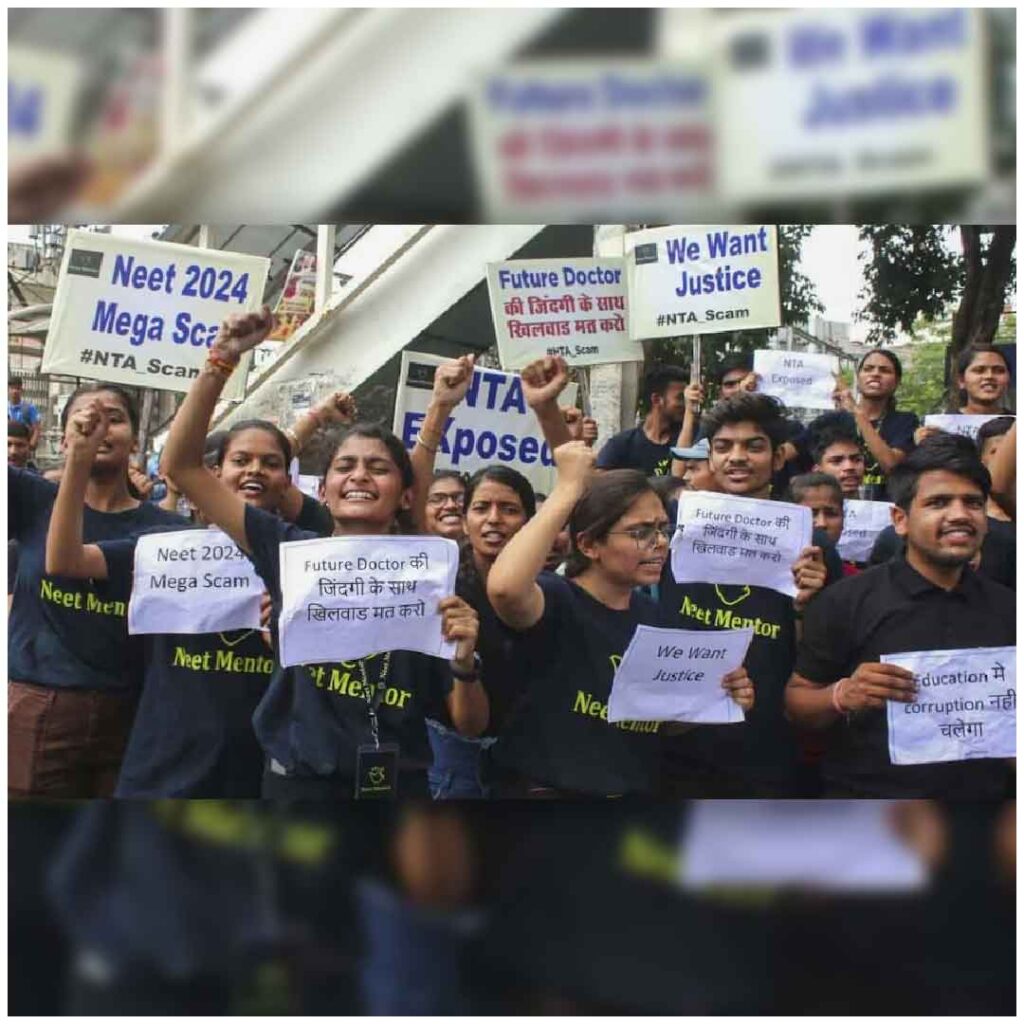NEET, UGC-NET Paper Leaks Highlight NTA's Institutional Failures, Pradhan Calls for High-Level Panel

India has witnessed a series of distressing incidents involving the leakage of question papers for two of its most significant examinations—the National Eligibility cum Entrance Test (NEET) and the University Grants Commission National Eligibility Test (UGC-NET). These leaks have not only jeopardized the integrity of the examinations but also raised serious concerns about the functioning of the National Testing Agency (NTA), the body responsible for conducting these exams. The situation has prompted Union Education Minister Dharmendra Pradhan to call for a high-level panel to investigate and address these institutional failures.
The Gravity of NEET and UGC-NET Leaks
NEET and UGC-NET are critical examinations that determine the academic and professional futures of millions of students across India. NEET is the gateway for students aspiring to pursue undergraduate medical courses, while UGC-NET qualifies candidates for positions such as Assistant Professors and for Junior Research Fellowships in Indian universities and colleges.

The paper leaks have severely undermined the credibility of these examinations. Students, parents, and educators have expressed widespread outrage and disappointment. The leaks not only cast a shadow on the efforts of genuine candidates but also raise questions about the effectiveness of the NTA’s security protocols.
NTA’s Institutional Failures
The NTA, established with the goal of conducting transparent and efficient examinations, has faced criticism for its inability to safeguard the integrity of these tests. The recent leaks suggest serious lapses in the agency’s procedures and raise concerns about its overall competence. The breaches have exposed vulnerabilities in the system, indicating that the NTA’s security measures are insufficient to prevent such occurrences.
Experts argue that the NTA needs to adopt more stringent security protocols. This includes better vetting of personnel involved in the examination process, enhanced monitoring of examination centers, and the implementation of advanced technology to track and prevent leaks. The repeated incidents have demonstrated that the current measures are inadequate, necessitating a comprehensive overhaul of the agency’s operational framework.
Dharmendra Pradhan’s Call for a High-Level Panel
In response to the growing concerns, Union Education Minister Dharmendra Pradhan has called for the formation of a high-level panel to investigate the matter. The panel's objective will be to identify the root causes of the leaks and recommend measures to prevent such incidents in the future. Pradhan’s call for action underscores the gravity of the situation and the need for immediate and effective solutions.
The proposed panel will likely include experts in education, cybersecurity, and law enforcement. Their combined expertise will be crucial in developing a robust strategy to address the systemic issues within the NTA. The panel’s findings and recommendations will be instrumental in restoring trust in the examination system and ensuring that the future conduct of NEET and UGC-NET is free from such controversies.
Impact on Students and Educational Institutions
The paper leaks have had a profound impact on students. Many candidates who prepared diligently for these exams now face uncertainty and anxiety about their futures. The leaks have also led to calls for re-examinations, adding to the stress and pressure on students. The credibility of the results is in question, which can have long-term implications for the academic and professional journeys of the affected students.
Educational institutions are also grappling with the fallout. Universities and colleges rely on the integrity of these examinations to admit qualified candidates. The leaks have disrupted the admission process and have potential implications for the academic calendar. Institutions are now faced with the challenge of ensuring that their admissions are based on fair and transparent criteria.
Restoring Trust and Moving Forward
Restoring trust in the NTA and the examination process will require a multifaceted approach. The high-level panel’s recommendations will be crucial, but their implementation will be the true test of the NTA’s commitment to reform. Transparency and accountability must be at the forefront of these efforts. The NTA needs to communicate openly with stakeholders, including students, parents, and educational institutions, about the steps being taken to address the issues.
In addition to tightening security measures, there is a need for continuous monitoring and auditing of the examination processes. Implementing technology-driven solutions, such as blockchain for secure and transparent handling of question papers, could be a game-changer. Ensuring that only authorized personnel have access to sensitive information and conducting regular audits to detect and rectify any lapses are essential steps.
The Role of Technology in Preventing Future Leaks
Technology can play a pivotal role in preventing future paper leaks. Advanced encryption methods, secure digital transmission of question papers, and real-time monitoring of examination centers are some of the measures that can be adopted. The use of artificial intelligence (AI) to analyze patterns and detect anomalies in the examination process could also help in identifying potential breaches before they occur.
Blockchain technology, known for its security and transparency, could be utilized to create an immutable record of the question paper handling process. This would ensure that any unauthorized access or tampering is immediately detected. By leveraging technology, the NTA can significantly enhance the security of its examination processes and prevent future incidents.
Conclusion
The NEET and UGC-NET paper leaks have highlighted significant institutional failures within the NTA. The call for a high-level panel by Union Education Minister Dharmendra Pradhan is a necessary step towards addressing these issues and restoring the credibility of the examination system. For the NTA, this is a critical moment to implement stringent security measures, adopt technology-driven solutions, and ensure transparency and accountability in its processes.
Click to read the full article





